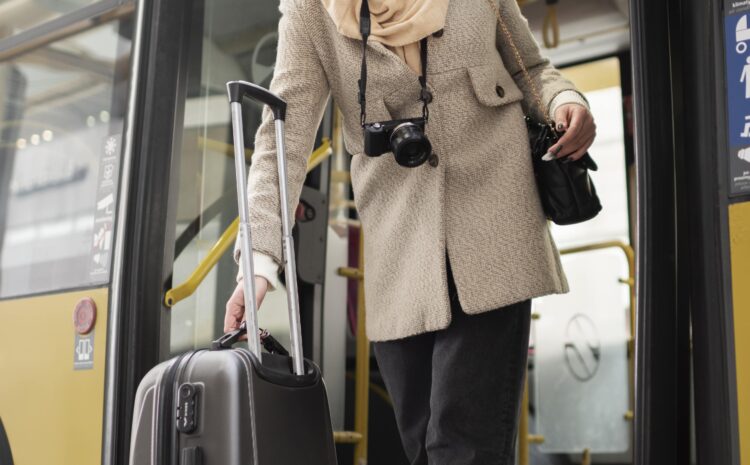
Abu Dhabi Transportation: Navigating a Global City of the Future
Abu Dhabi, the capital of the United Arab Emirates, is a gleaming symbol of modernity and progress. With its world-class infrastructure and meticulously planned urban spaces, the city’s transportation network reflects a commitment to ensuring seamless, efficient, and innovative mobility. As Abu Dhabi continues to grow as a global hub for business, tourism, and culture, its transportation system has evolved to accommodate the demands of a rapidly expanding population, while also addressing environmental sustainability and future mobility needs.
Road Network: The Backbone of Abu Dhabi’s Connectivity
At the core of Abu Dhabi’s transportation system is an expansive and meticulously maintained road network that connects the city to its surrounding areas, as well as to other Emirates like Dubai and Al Ain. Abu Dhabi’s wide highways, such as Sheikh Zayed Road, are renowned for their excellent quality, ensuring smooth traffic flow for residents and visitors alike. These roads are lined with modern amenities, including advanced traffic management systems, electronic signboards, and surveillance cameras, all contributing to a safe and efficient driving experience.
The city’s road network supports a variety of transportation modes, from personal vehicles to taxis, buses, and ride-sharing services. Residents often opt for private cars as a primary mode of transportation, facilitated by the availability of ample parking spaces and high-end road conditions. However, as the city grows, so too does the emphasis on reducing traffic congestion and encouraging more sustainable travel options.
Public Transport: Affordable and Reliable
Abu Dhabi public transportation is continuously improving, offering residents and visitors an affordable, reliable, and eco-friendly alternative to private vehicles. The city’s comprehensive bus network covers vast areas, ensuring that even far-flung residential and business districts are well-connected. Abu Dhabi’s buses are equipped with air conditioning, Wi-Fi, and other amenities to enhance passenger comfort, making commuting convenient and enjoyable. Buses operate on a regular schedule, with multiple routes crisscrossing the city, linking key landmarks such as Abu Dhabi Mall, the Corniche, Yas Island, and Abu Dhabi International Airport.
Additionally, the Department of Transport offers a unified fare system, allowing travelers to use a rechargeable “Hafilat” card across various modes of public transport. With the city’s ongoing efforts to expand its network, including discussions about introducing a metro system, public transport is becoming an increasingly attractive option for the city’s residents.
Sustainability in Transportation: Greener and Smarter Mobility
Abu Dhabi is at the forefront of integrating sustainable practices into its transportation network, aligning with the UAE’s broader vision of reducing its carbon footprint. A notable initiative is the introduction of electric buses to the city’s public transport fleet. These zero-emission vehicles are designed to reduce air pollution, minimize noise, and offer a more environmentally-friendly option for commuting.
The promotion of electric vehicles (EVs) is another area of focus, with the government encouraging residents to switch to EVs through incentives like free parking and reduced toll fees. Charging stations are being rolled out across the city, making it easier for residents and businesses to adopt this green technology. Carpooling and ride-sharing apps like Careem and Uber further support Abu Dhabi’s sustainability goals by reducing the number of vehicles on the road.
Taxi Services: Accessible and Tech-Enabled
Taxi services remain one of the most popular transportation options in Abu Dhabi. The city boasts a fleet of modern taxis, most of which are equipped with advanced technology such as GPS, card payment facilities, and meters regulated by the government. Available at all hours, taxis provide a convenient way to travel across the city, with special services offered for female passengers and families. For tourists, taxis are a practical way to explore key attractions like the Sheikh Zayed Grand Mosque, Emirates Palace, and Saadiyat Island.
In recent years, ride-hailing services like Uber and Careem have revolutionized the taxi experience, offering users greater flexibility and convenience with the tap of a smartphone. These apps provide a range of options, from budget-friendly rides to luxury cars, catering to every type of traveler.
Luxury Transport: Traveling in Style
For those seeking a premium experience, Abu Dhabi offers a plethora of high-end chauffeur services. Whether for business executives, VIPs, or tourists looking to travel in style, these services provide access to a fleet of luxury vehicles driven by professional chauffeurs. These private transport services cater to airport transfers, business meetings, and special events, ensuring that passengers arrive at their destination in comfort and elegance. Companies specializing in luxury transport offer a range of vehicles, including limousines and high-end SUVs, providing a level of sophistication that matches the city’s cosmopolitan vibe.
Air Connectivity: Gateway to the World
Abu Dhabi’s role as a global hub is underscored by the presence of Abu Dhabi International Airport, one of the busiest and most advanced airports in the region. The airport connects Abu Dhabi to major cities around the world, serving as a vital gateway for international travelers and cargo. With a strategic location at the crossroads of Europe, Asia, and Africa, the airport has become a key transit point for millions of passengers annually.
In addition to passenger services, Abu Dhabi International Airport plays a significant role in facilitating cargo and logistics operations, supporting the city’s growing economy. Ongoing expansions and technological upgrades ensure that the airport remains at the cutting edge of global aviation.
Future Mobility: Embracing Innovation
Abu Dhabi’s transportation system is poised for even greater advancements in the coming years, as the city embraces futuristic mobility solutions. One of the most anticipated projects is the development of a high-speed rail and metro system, which will revolutionize public transport and significantly reduce travel times. Plans for a Hyperloop, which could potentially connect Abu Dhabi with other Emirates at unprecedented speeds, have also been discussed, reflecting the city’s commitment to pioneering next-generation transportation.
These cutting-edge projects are expected to enhance Abu Dhabi’s position as a leader in urban mobility and smart cities, setting new benchmarks for transportation systems around the world.
Conclusion: A Well-Connected City
From extensive road networks and efficient public transportation to luxury chauffeur services and futuristic mobility projects, Abu Dhabi’s transportation system is a reflection of the city’s forward-thinking vision and commitment to excellence. As the city continues to grow and evolve, its emphasis on sustainability, innovation, and world-class connectivity ensures that Abu Dhabi remains one of the most accessible, modern, and dynamic cities in the world. Whether you are a resident, a tourist, or a business traveler, navigating Abu Dhabi is a smooth, convenient, and enjoyable experience, positioning it as a global city of the future.




